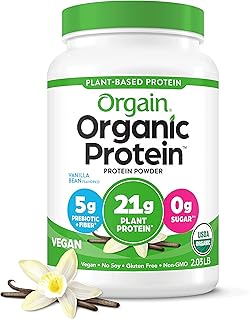These days, everything from yoghurts to cereal wears its protein content on the front of the package, like a badge of honour. With sugar outlawed, fat up in the air, and carbs only just making a comeback, it has become extremely easy to equate ‘protein’ with ‘wellness’.
Never mind the fact that often protein powders and celeb-endorsed protein balls are loaded with sugar. Or the fact that, for your additional protein intake to be of any actionable use, it needs to be combined with at least a base level of exercise. Or, crucially, the fact that too much protein is just as bad for the body as too much of any other nutrient. And that’s before we’ve even considered that not all proteins are created equally.
Consider this, then, your guide to what’s worth filling up your shopping basket with, and what should stay shelved. From a carnivore’s dream platter to a vegan lifter’s heavyweight dinner, these are the best sources of protein known to man. But first, we need to get a few things straight…
What Exactly Is Protein? And Why Do I Need It?
“Proteins are nitrogen-containing substances that are formed from amino acids,” begins Harley Street nutritionist extraordinaire, Rhiannon Lambert. “They form a major structural component of muscle and tissue and are further used for many other processes within the body such as hormone and enzyme production.”
Which sounds… complicated.
“Protein is one of the three most important nutrients that your body needs in order to function correctly. It ensures healthy muscle growth and also works to produce hormones,” explains Valentin Raigué, a nutritionist working with online personal training app FizzUp. Which clears things up a bit.
“Protein is part of the large group of macronutrients. They give you energy if case you run out of carbohydrates and fat. Protein is also crucial for your growth and the regeneration of cells like those found in your muscle tissue,” continues Raigué. “[Proteins] are crucial for humans, because unlike carbohydrates, our bodies body can’t produce them on their own, The only way you can get them is through your food, so watch what you eat!”
RELATED BEST 10 ON AMAZON:
| IMAGE | TITLE | TRENDS | SEE MORE |
|---|
 | Muscle Milk Pro Advanced Nutrition Protein Shake, Intense Vanilla, 14 Fl Oz Bottle, 12 Pack, 40g Protein, 1g Sugar, 16 Vit... | 29610.2 | MORE VIEW |
|---|
 | Cellucor COR-Performance Protein Powder Molten Chocolate 5lb. | 100% Gluten Free + Low Fat Post Workout Muscle Growth Drin... | 2635.8 | MORE VIEW |
|---|
 | Forzagen Lean Gainer Premium Mass Builder 12 & 8 Lbs, 2 Flavor Available, Natural Carb Source, Oats, Sweet Potatoes, Yams... | 348.5 | MORE VIEW |
|---|
 | Vega Sport Premium Protein Powder, Vanilla, Vegan, 30g Plant Based Protein, 5g BCAAs, Low Carb, Keto, Dairy Free, Gluten F... | 19494.8 | MORE VIEW |
|---|
 | Fx Supps Whey Pro-FX Protein Powder Strawberry Flavored Shake | Post Workout Recovery Supplement for Men and Women | Boost... | 15 | MORE VIEW |
|---|
 | BSN SYNTHA-6 Whey Protein Powder, Chocolate Protein Powder with Micellar Casein, Milk Protein Isolate, Chocolate Milkshak... | 82922.1 | MORE VIEW |
|---|
 | Vega Sport Premium Protein Powder, Chocolate, Vegan, 30g Plant Based Protein, 5g BCAAs, Low Carb, Keto, Dairy Free, Gluten... | 19494.8 | MORE VIEW |
|---|
 | Vega Sport Premium Protein Powder, Chocolate, Vegan, 30g Plant Based Protein, 5g BCAAs, Low Carb, Keto, Dairy Free, Gluten... | 50854.5 | MORE VIEW |
|---|
 | Premier Protein Shake 30g Protein 1g Sugar 24 Vitamins Minerals Nutrients to Support Immune Health, Chocolate, 11.5 Fl Oz... | 874552 | MORE VIEW |
|---|
 | Optimum Nutrition Gold Standard 100% Whey Protein Powder, French Vanilla Creme, 2 Pound (Packaging May Vary) | 607146 | MORE VIEW |
|---|
 | Optimum Nutrition Gold Standard 100% Whey Protein Powder, Vanilla Ice Cream, 2 Pound (Packaging May Vary) | 356848 | MORE VIEW |
|---|
 | Optimum Nutrition Gold Standard 100% Whey Protein Powder, Extreme Milk Chocolate, 2 Pound (Packaging May Vary) | 356848 | MORE VIEW |
|---|
 | Orgain Organic Vegan Protein Powder, Vanilla Bean - 21g of Plant Based Protein, Low Net Carbs, Gluten Free, Lactose Free, ... | 251253 | MORE VIEW |
|---|
 | Orgain Organic Unflavored Vegan Protein Powder, Natural Unsweetened - 21g of Plant Based Protein, Non Dairy, Gluten Free, ... | 251253 | MORE VIEW |
|---|
 | Atkins Gluten Free Protein-Rich Shake, Milk Chocolate Delight, Keto Friendly (Pack of 12), 11 Fl Oz | 175620 | MORE VIEW |
|---|
 | Orgain Organic Protein + Superfoods Powder, Vanilla Bean - 21g of Protein, Vegan, Plant Based, 5g of Fiber, No Dairy, Glut... | 141588 | MORE VIEW |
|---|
 | Isopure Unflavored Whey Isolate Protein Powder, with Vitamin C & Zinc for Immune Support, 25g Protein, Zero Carb & Keto Fr... | 134609 | MORE VIEW |
|---|
 | Garden of Life Vegan Protein Powder - Raw Organic Meal Replacement Shakes - Vanilla Chai - Pea Protein, Greens and Probiot... | 134130 | MORE VIEW |
|---|
Tips: "Amazon, Amazon Prime, the Amazon logo and Amazon Prime logo are trademarks of Amazon.com, Inc. or its affiliates". AS AN AMAZON ASSOCIATE, WE EARN AFFILIATE COMMISSIONS FROM QUALIFYING PURCHASES.





















